|
What exactly are the duties assigned to your wedding party? Believe it or not, the wedding party isn't there just to compliment how amazing you look, but to actually work. Below are their duties. ATTENDANT DUTIES:(Emily Post)
Typical Responsibilities of Attendants • Pay for their wedding attire and accessories (excluding flowers). • Arrange and pay for their own transportation. (Wedding hosts should provide the Accommodations.) • Be timely and communicative regarding travel arrangements and acquiring attire. • Understand the specific duties involved (see below). • Arrive at specified times for all wedding-related events. • Attend the rehearsal and rehearsal dinner; attend other pre-wedding events when feasible. • Give an individual wedding gift to the couple, or contribute to a group gift from all the attendants. • Assist the bride and groom whenever possible. • Be attentive to other guests at the wedding and reception. Specific Duties Maid or Matron of Honor • Helps the bride select the bridesmaids' attire. • Organizes the bridesmaids' gift to the bride. • Makes sure bridesmaids have their attire. • Holds the groom's wedding ring and the bride's bouquet during the ceremony. • Witnesses the signing of the marriage certificate. • Stands in the receiving line, if there is one. • Helps the bride during the reception (gathering guests for the cake cutting, dancing, and the bouquet toss). • Helps the bride change into her going-away clothes, and takes care of the bride's wedding dress and accessories after the reception. Nice, but optional • Helps address invitations and place cards. • Assists in hosting or organizing a pre-wedding party, if the bridesmaids decide to have one. Bridesmaids • Attend the bridesmaids' luncheon, if there is one. • Supervise flower girl(s) and ring bearer(s) if asked. • Assist the bride at the reception as requested. • Participate in activities such as a receiving line and a bouquet toss. • Contribute to the bridesmaids’ gift to the bride. Nice, but optional • Host a shower, bridesmaids’ luncheon, bachelorette, or other pre-wedding party or get-together. Best Man • Coordinates the groomsmen and ushers' gift to the groom. • Organizes the bachelor party for the groom, if there is one. • Makes sure that the groom's wedding-related payments are prepared; delivers prearranged payments to officiate, assistants, musicians, and singers at the ceremony. • Sees that the groomsmen and ushers arrive on time and are properly attired. • Instructs the ushers in the correct seating of guests. • Keeps the bride's wedding ring during the ceremony. • Witnesses the signing of the marriage certificate. • Drives the bride and groom to the reception if there's no hired driver; has the car ready for the couple to leave after the reception and may drive them to their next destination. • Offers a toast to the bride and groom at the reception; dances with the bride, the mothers, the maid of honor, and other single female guests. • Gathers and takes care of the groom's wedding clothes (returning rental items on the next business day). Groomsmen and Ushers • Attend the bachelor party, if there is one. • Contribute to the ushers' gift to the groom. • Lay the aisle runner, if one is used, before the processional. • Greet guests and escort them to their seats. • Know the seating order; review special seating arrangements prior to the ceremony. • Hand each guest a program, if programs are provided. • Remove pew ribbons, close windows, re-roll the aisle runner; retrieve any programs or articles left behind after the ceremony. • Help guests who need directions to the reception site. • Be on hand to assist any guests who are infirm or disabled. • Dance with the bride, the mothers, the bridesmaids, and other single female guests. • Coordinate the return of rental clothing with the head usher or best man. Photo credit: Melissa Mayrie Photography Addressing and Sending Invitations
http://emilypost.com/advice/addressing-sending-wedding-invitations/ Opening a wedding invitation is unlike opening any other piece of mail. Much care goes into addressing both the inner and outer envelopes. Several enclosures usually accompany the invitation itself, and there is a thoughtful order to how they are placed inside the outer envelope, and even a few things to think about when you stamp and mail them. Before You Begin
The inner envelope bears the title and last names of the specific people invited. This allows the host to be very clear about who is invited, and by omission, who is not invited. If children are invited but are not receiving a separate invitation, their names may be written on a line below their parents’ names on the inner envelope. If no inner envelope is used, children’s names are written on the outer envelope below the names of their parents. For example, the inner envelope for Mr. and Mrs. James Darling and the two Darling children, Sarah and Jonathan, would be written: Mr. and Mrs. Darling Sarah Darling Jonathan Darling It’s also fine to write familiar names for close family: Aunt Martha and Uncle Bill. The outer envelope The outer envelope is addressed conventionally using titles, first, (middle), and last names.
Mr. and Mrs. James Arthur Darling Forms of Addresses Following is list of the most common forms of address. To a married couple Invitations are always addressed to both members of a married couple, even though the bride may know only one or knows that only one will attend. To an unmarried couple living together Invitations to an established couple who are unmarried but live at the same address are addressed to “Ms. Nancy Fellows and Mr. Scott Dunn,” on one line. To a married woman doctor or two married doctors If the woman uses her husband’s name socially, the address is “Dr. Barbara and Mr. James Werner.” If she uses her maiden name both professionally and socially, it is “Dr. Barbara Hanson and Mr. James Werner.” If the husband is also a doctor, the address is either “The Drs. Werner” or “Drs. Barbara and Robert Werner.” How to add “and Guest” Since it’s awkward and impersonal to address the outer envelope as “Mr. James Smith and Guest,” the two-envelope system works well. Address the outer envelope to “Mr. James Smith” and the inner envelope to “Mr. James Smith and Guest.” If you’re only using one envelope, include a short note with your invitation: “Dear James, You’re welcome to bring a guest to the wedding. Please let me know. Best, Laura.” If there’s time and James supplies the information, you can send his guest an invitation, too. How to Stuff the Envelopes
Before you buy stamps, take an assembled invitation to the post office and have it weighed. It’s likely that the inserts, or even an unusually shaped envelope, will call for extra postage. The post office usually has wedding-themed stamps that will cover the cost of most invitations with enclosures. Some post offices may be out of stock, however, so leave time to find them at another branch or to order them online. Remember that maps and other inserts sent to out-of-town guests will make those invitations heavier than ones sent to local guests and may require a postage adjustment. In that case, be sure to assemble two sets and have both weighed. Lastly, ask at your post office if it is possible to have your envelopes hand-stamped. This produces a different postmark (often considered more attractive) than if your invitations were run through an automatic sorter. I was reading an interesting article about recycling wedding items and I could relate. A lot of couples buy wedding decor in an effort to save money and then find themselves stuck with a lot of items they have no use for. Some area able to sell them or even donate to their friends upcoming weddings while others end up donating them or repurposing them as home decor. If having DIY Decor is part of your design, then make sure you have an exit strategy.
1. Post the week of your wedding on social media groups about items you will be selling in the future 2. Donate to a friends wedding 3. See if your venue is interested in purchasing some of your items. Also, you may want to donate 4. Incorporate as part of your home decor or office If you do not want to bother with excess DIY items, you may want to rent them instead. Even though it may cost more, the end result is--you do not have to bother with it in the future. It is not cost effective, but it is less stress. The article for reference is:https://www.jamaicaobserver.com/tuesday-style-vows/recycling-wedding-decor_217105 What is the difference between a Wedding Planner, Wedding Coordinator or Venue Coordinator5/11/2020
We use these words a lot but really, what is the difference!
1. A Wedding Planner is your right-hand man(or woman lol) We are there from beginning to end. We assist with finding vendors, venues, design, decor, and handling all the details necessary to ensure only a smooth wedding planning experience but also a smooth wedding day. On the wedding day, we become the Wedding Coordinator so you can continue to relax on your wedding day. 2. Wedding Coordinator (Called Event Management, Day of and/or Month of coordinator) is the liaison between you (the bride and groom) and ALL of your vendors. We are assigned the task of Organizing and Leading your event. We can be hired anytime during the planning process but our main objective is to make sure your wedding DAY runs smoothly. Day of Coordination usually starts 2 weeks prior and Month of Coordination starts 4-6 weeks prior. We ensure setup and breakdown of the venue and vendors, draw up the timeline, become your personal maitre d, handle the ceremony rehearsal and ceremony and a wealth of other things to ensure your wedding day runs smoothly. 3. Venue Coordinator is your liaison between you and the hotel/venue staff. They are your first point of contact and probably the person you met with when you initially toured the venue. Their main objective is to make sure they have covered all aspects of your event as it pertains to their venue. All other aspects of your wedding technically do not concern them. They are not your wedding planners. They handle your tastings, room block and ensure on your wedding day, the room (s) are set up per your previous discussions and that the vendors are there per the information you (the bride and groom) have given them. After the cake cutting, they will leave your event and a maitre d takes over. The Knot discusses top Wedding Trends of 2020.
Click link below www.theknot.com/content/new-wedding-trends 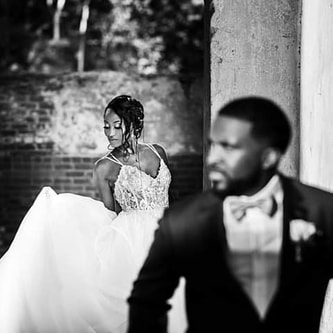 Crystal Cofie Photography Crystal Cofie Photography After the excitement from your engagement wears off and the reality of wedding planning begins, you may find yourself a bit overwhelmed. Here are a few tips.
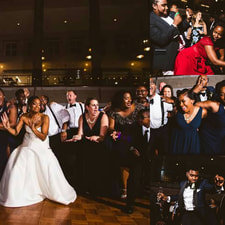 Crystal Cofie Photography Crystal Cofie Photography One of the questions I hear a lot is, Why do DJ's cost so much? The DJ will make or break your party. We have come a long way from putting a record on and saying a few words on the microphone. I asked 4 DJ/Entertainment Companies for their thoughts and cost and their response was article worthy. A professional DJ puts a lot of work into your events weeks, even months prior to your event. They must pull the music, program equipment, and coordinate with venues and other vendors (especially if there is not a planner or coordinator) Prior to your event, they must upgrade and maintain their equipment and also handle training sessions to ensure that all of their staff can handle your event with perfection. Your professional DJ isn't just pushing play, he must 1. Have the ability to control a room 2. Time Management 3. Posses Professional Equipment 4. Have Experience 5. Know the proper flow of your wedding and be able to quickly transition 6. Be well spoken and Professionally dressed I must quote one DJ who said to me, "If you hire someone who DJ's as a Hobby, you will wedding will be just that...a Hobby. Not everyone can afford a $1500.00 DJ or a $1,000 DJ but please make sure the DJ you choose possess the above stated qualities. I have seen a lot of bad bad DJ's that couples hired because he was a friend or he was cheap. Please do you research. Here are a few tips when searching for vendors.
Basic Tips
 Blue Sky Studios Blue Sky Studios The Service Charges is the evil little charge that most couples despise. It hikes up your food and/or venue cost and is taxable. So what is this cost? Each venue or caterer charges for different reasons. If you are at a hotel, for example, you will notice the charge is 18% - 24%. These charges may include labor (kitchen staff, setup staff, event manager, etc. These charges also incorporate the use of their equipment such as chafing dishes, utensils, china, etc. If you are using a caterer, you will see the breakdown labor cost but sometimes you do not see the breakdown of their staff that cooks the food, load, and unload their trucks. For outside caterers, this charge covers fuel, transportation, and maintenance, along with equipment use such as chafing dishes, china, etc. At no time is this charge a gratuity. When planning your wedding, please be sure to incorporate these charges into your final budget. 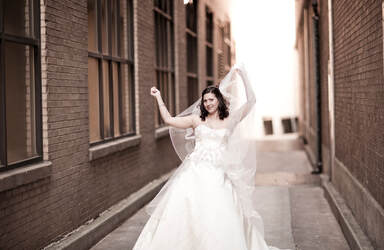 Seth Snider Photography. Gown from Hayden Olivia Seth Snider Photography. Gown from Hayden Olivia COMMON MISTAKES BRIDES MAKE WHEN GOWN SHOPPING: Inspired by: http://www.bridalguide.com/fashion/wedding-dress-shopping-guide/wedding-dress-shopping-tips?page=1 1. BRINGING AN ENTOURAGE: Keep it Simple. The more people you bring the more confusing selecting your gown gets. Keep the numbers down to under 3 2. SHOPPING TOO EARLY: It is natural to want to start shopping for gowns soon after you become engaged. The problem is, you try on so m any that you may forget what you really like. Try to keep gown shopping at 12 months prior or when you are READY to purchase. 3. TRYING ON TOO MANY GOWNS: Again, the more you try on, the more confusing it becomes. Try to try on no more than 10 4. BEING SWAYED BY DEEP DISCOUNTS: It’s hard to resist the huge discounts from trunk or sample sales. Remember, most of these gowns have been worn by many brides-to-be and may be worn, missing embellishments, dirty, etc. Thoroughly check out your gown before purchase 5. DEMANDING THE WRONG SIZE: What bride doesn’t say she is losing weight before the wedding. Either way, buy a gown that actually fits you. You can alter it later. Buying a gown in a size smaller than you are will just frustrate you if you never lose the weight. 6. STICKING WITH ONE STYLE: You may really want that mermaid look but you may not have the body for it. Be open with your styles. You may find you like another style better. 7. BUYING A DRESS YOU DON’T LOVE: Some buy dresses because of price but the disappointment from your purchase will be evident on wedding day. 8. TRYING ON DRESSES YOU CAN’T AFFORD: We all want that designer gown, but trying on gowns you cannot afford may leave you disappointed, especially if it becomes your favorite gown. Please stick within your price range 9. NOT ACCOUNTING FOR EXTRA COST: After purchasing your gown, remember to add things like delivery and tax, alternations, bustle, undergarments and veil. |
Visit us on Instagram or Facebook for the most up to date events
Welcome to Our BlogCategories
All
Archives
January 2024
|
YES WE TRAVEL. We are North Carolina Wedding Planners and South Carolina Wedding Planners. Areas include but not limited to Asheville NC, Charlotte NC, Hickory NC, Lake Lure NC, Hendersonville NC, Raleigh NC, Durham NC, Greensboro NC, Winston Salem NC, Wilmington NC, Myrtle Beach SC, Charleston SC, and abroad..
The Silk Veil specializes in South Asian Weddings, Chinese weddings, Korean Weddings, Hindu Wedding, Asian fusion weddings, Same sex weddings, multi cultural weddings, Coptic weddings
Contact Hours
Tuesday-Friday: 10am - 6pm
Saturday, Sunday, Monday- Closed All meetings are by appointment only |
|
The Silk Veil, Day of Coordinator, Month of Coordinator, Charlotte NC Wedding Planners, Charlotte Wedding Planners,,, Greensboro Wedding Planners, North Carolina Wedding Planners, .Wedding Planners, Affordable Wedding Planner, Day of Coordination, Wedding Planning Charlotte, Nigerian Wedding Planner, Indian Wedding Planner, Raleigh Wedding Planner, Asheville Wedding Planner, Wilmington Wedding Planner, Lake Lure Wedding Planner, Charlotte Wedding Planner, Day of Coordination Charlotte, Day of Coordination Greensboro, Day of Coordination North Carolina, Day of Coordination South Carolina,


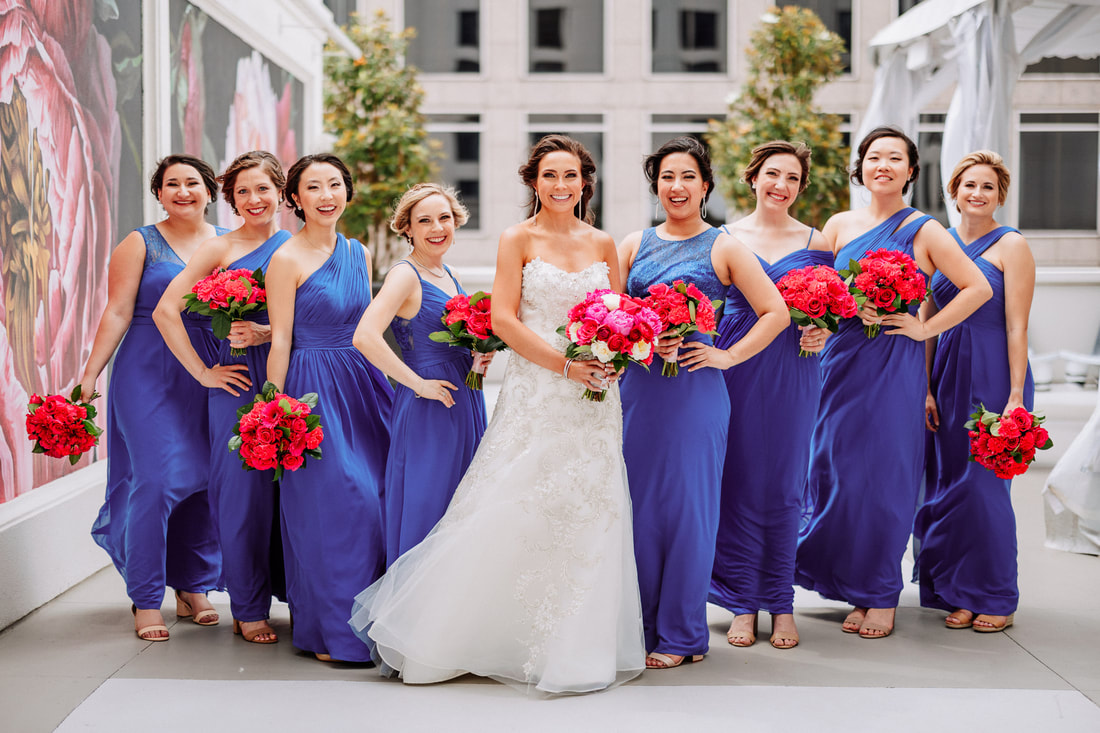
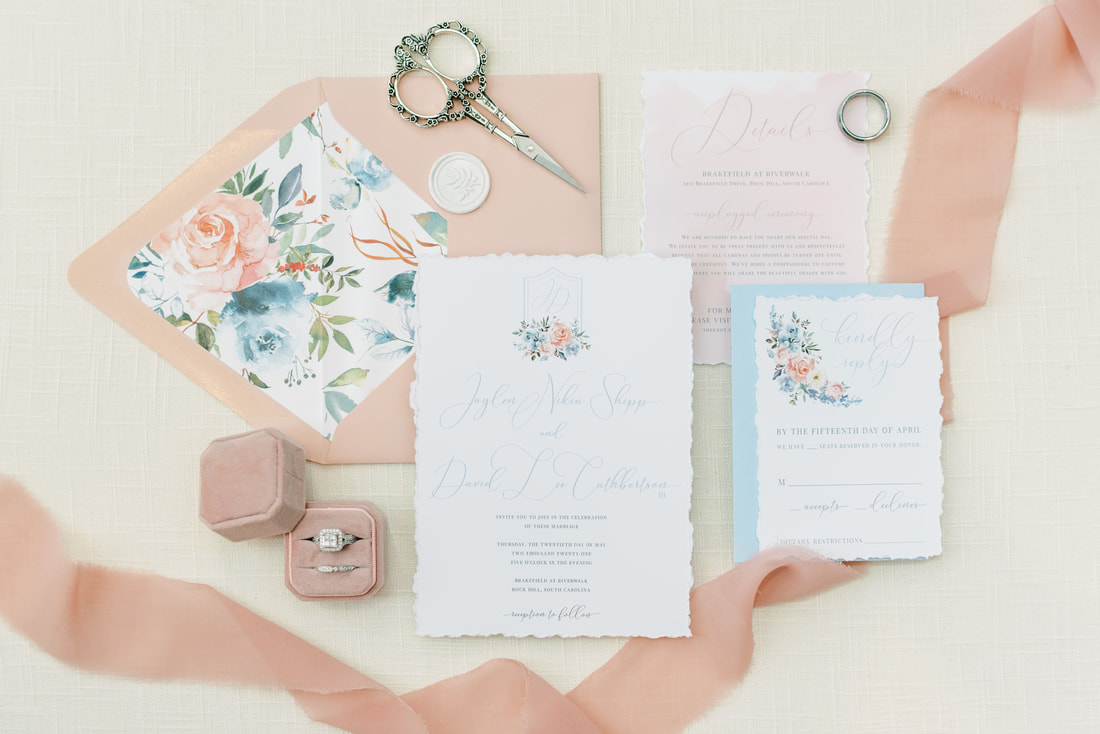
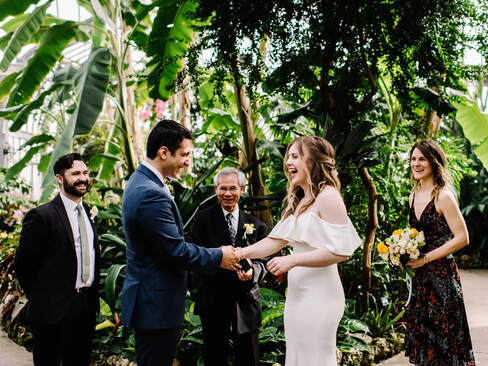

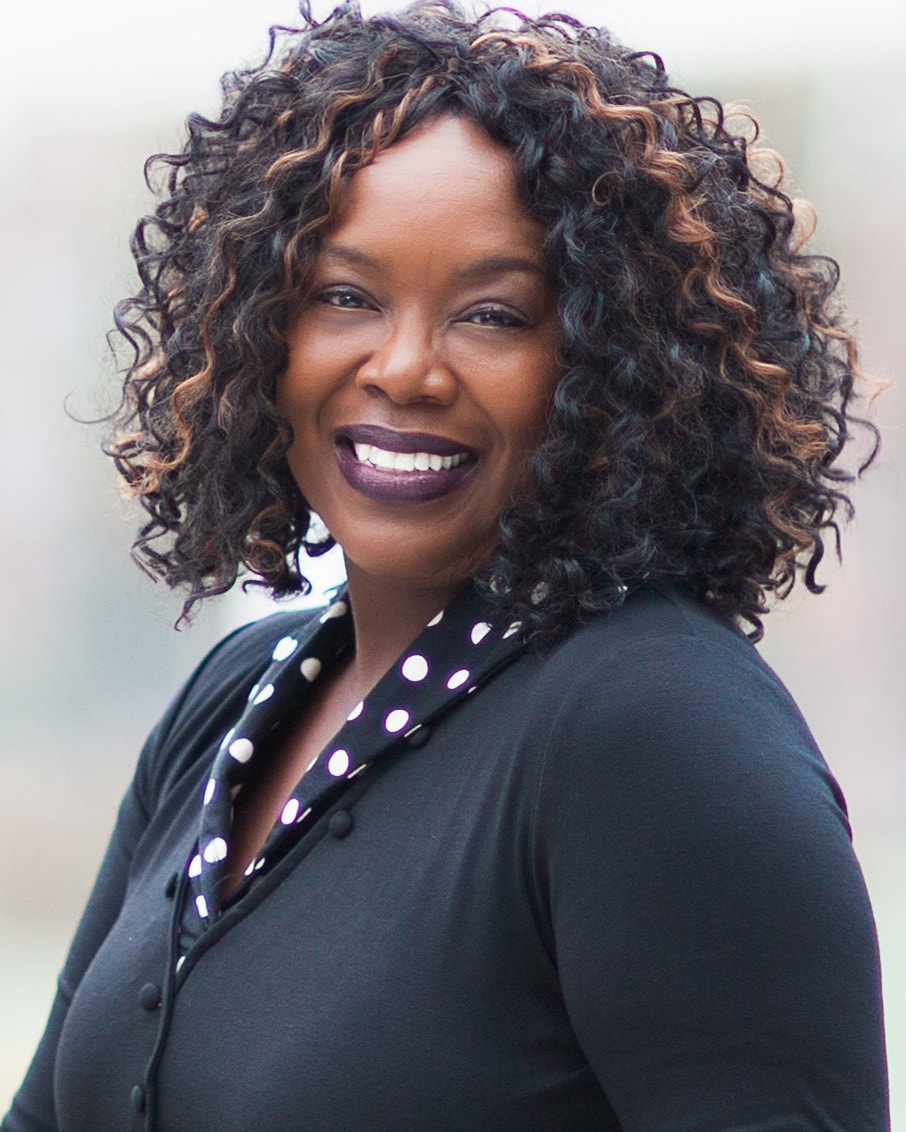
 RSS Feed
RSS Feed
